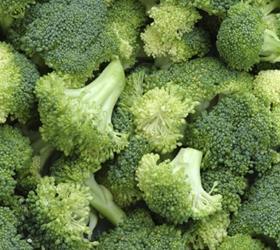
A new variety of fast-growing sprouting broccoli could produce crops year-round and remove seasonality in supply.
Developed by John Innes Centre (JIC) scientists, the new broccoli goes from seed to harvest in eight to 10 weeks. It has the potential to deliver two full crops a season in-field, or it can be grown year round in protected conditions, which could help with continuity of supply, as growers would no longer be reliant on seasonal weather conditions.
Many brassica crops rely on a period of cold before they can flower and so are susceptible to fluctuating winter temperatures. JIC researchers have been working on ways to reduce this vulnerability to fluctuations in climate, which caused havoc in the supply chain recently when wet and cold weather devastated courgette, salad and broccoli crops in Murcia.
Leader researcher Dr Judith Irwin said: “We harnessed our knowledge of how plants regulate the flowering process to remove the requirement for a period of cold temperature and bring this new broccoli line to harvest faster.
“This means growers could turn around two field-based crops in one season, or if the broccoli is grown in protected conditions, 4-5 crops in a year.
“This is a very exciting development as it has the potential to remove our exposure to seasonal weather fluctuations from crop production. This could mean broccoli - and in future other vegetables where the flower is eaten, for example, cauliflowers – can be grown anywhere at any time enabling continuous production and supply of fresh local produce.”
Maximising potential in urban farms
In addition to a short growing period, there are also opportunities to produce crops such as the new broccoli variety in urban farms, to reduce the carbon footprint of food production and supply.
Head of business development at JIC, Dr Jonathan Clarke, said: “The continuity of food production is being challenged by changes in our climate. Here at the John Innes Centre we have been challenging the way people think about how we produce food.
“As part of this approach we are considering the potential of moving some forms of food production into contained horticultural production systems – these could range from simple glasshouse or growth rooms to more complex vertical farms. This new line of broccoli could be grown in such systems and would overcome the problem of seasonality and our dependence on imported crops.”



